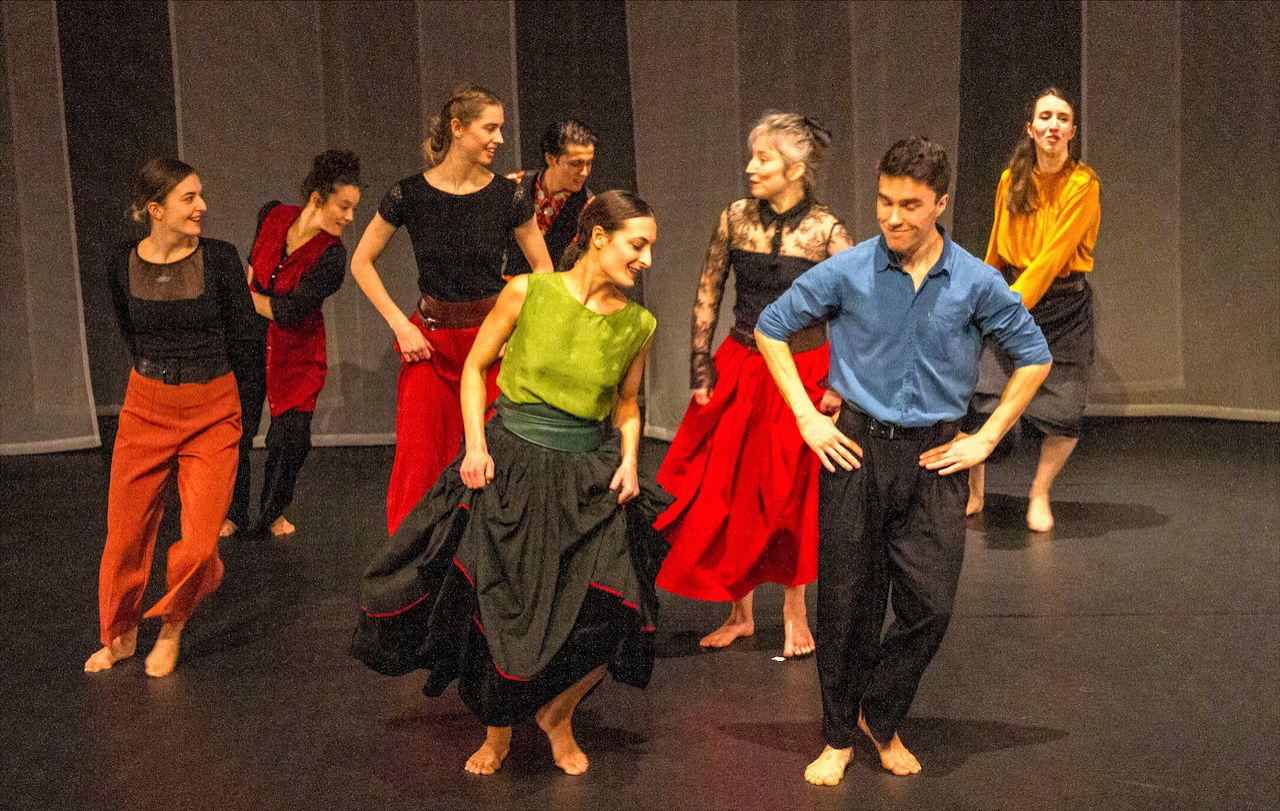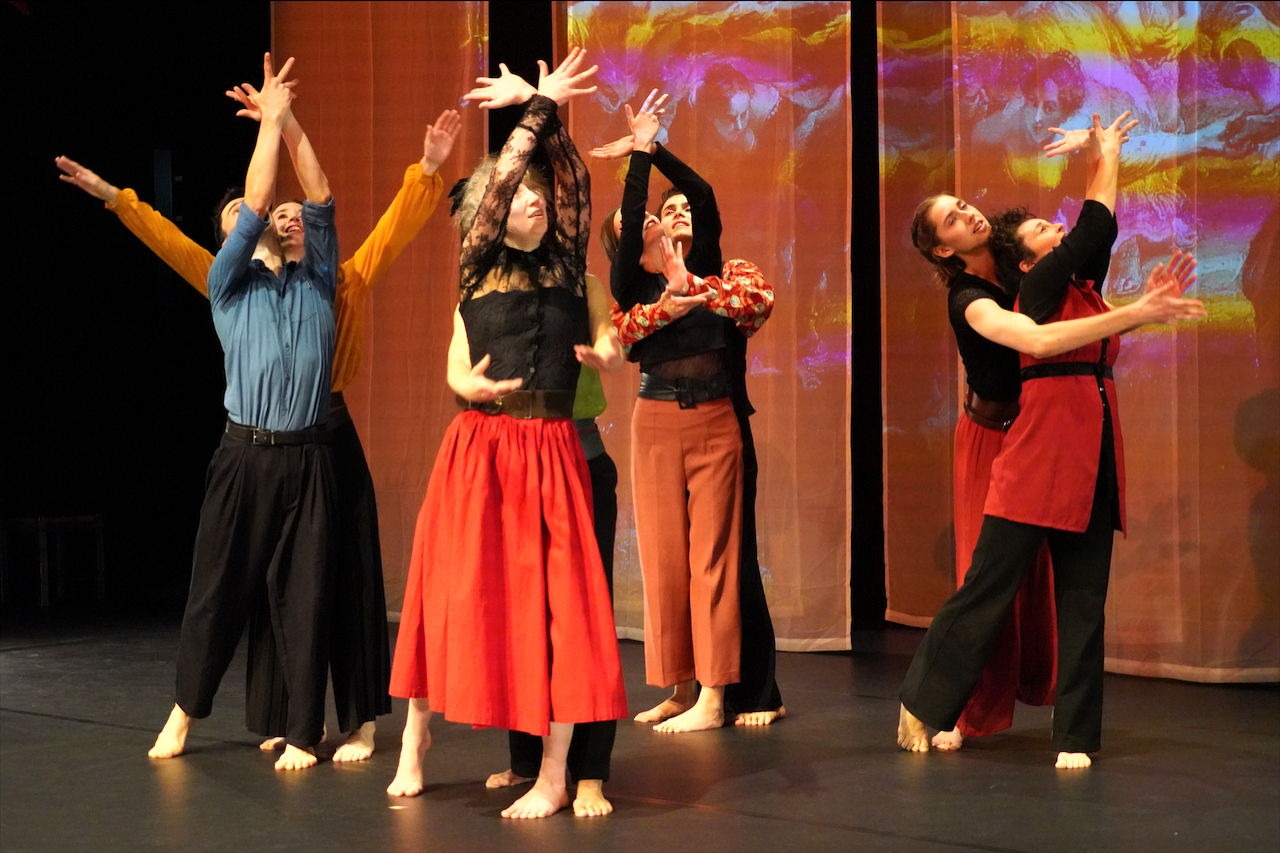
West-Land-Dances
A dance theater evening followed by Bal modern

Ensemble
Artistic direction / scenography / texts: J.U. Lensing
Choreography: Jacqueline Fischer
(in collaboration with the ensemble)
temporary assistants: Sara Pena Cagigas & Darwin Diaz
Dancers: Miriam Arnold, William Lundberg, Francesca Merolla, Julia Monschau, Christian Paul, Lara Pilloni, Mariane Verbecq, Linda Withelm
Guest dancer: Frederik Brune
Music: J.U. Lensing, Jens Barabasch, Christiane Meis
(based on traditional dance melodies)
Electronics + percussion: J.U. Lensing
Woodwind instruments: Jens Barabasch
Accordion: Christiane Meis
Costumes: Caterina Di Fiore
Lighting design: Markus Schramma
Production management: J.U. Lensing
Artistic office: Julia Roth
Print design & design of the silkscreen artwork for the stage set: Ernst Merheim
Photos: Johann Lensing & Michael Zerban (original sound)
Have you ever heard of dances like Maike, Neue Spindel or Kleiner Düsseldorfer? Or Eifeler or Sauerländer? All dances that were once danced here. The only thing we know here is the sirtaki. So what do we dance? And: who dances together anyway?
J.U. Lensing 2024
About the Production
In southern and central Germany, there are still traditional folk music forms, dance ensembles and festivals dedicated to this cultural heritage. In western Germany, and especially in NRW, it is still almost frowned upon to engage in folk dances and folk music for various reasons. However, there are also active folklore groups in NRW that are dedicated to folk dance in the broadest sense (mostly Europe-wide dances) and which to a large extent emerged from the folklore wave of the 1970s. As a rule, these dance and music ensembles have little contact with contemporary dance or new music.
In West-Land-Tänze, Düsseldorf’s THEATER DER KLÄNGE embarked on a journey of discovery into this now almost forgotten cultural heritage. After an intensive research phase on this topic in spring 2023, THEATER DER KLÄNGE revived the historical material and combined it with contemporary music and dance. In this way, connections between identity, integration, the past and forgetting history were uncovered.
The piece consisted of two parts:
1. a contemporary stage reflection in the form of an aesthetic reaction to the music and dance material of regional “historical” folk dance and folk music and its modern possibilities for further development.
2. a Bal modern with and for the audience in the foyer of the theatre
The Düsseldorf THEATER DER KLÄNGE – always creatively interested in questions of cultural heritage – made a current contribution to the engagement with this cultural heritage with the dance production West-Land-Tänze, but also with accompanying actions such as the publication of an e-book on the premiere on this topic and the organisation of the “Bal modern” events for the audience after the performances.
The e-book is available at:
Palimpsest Download